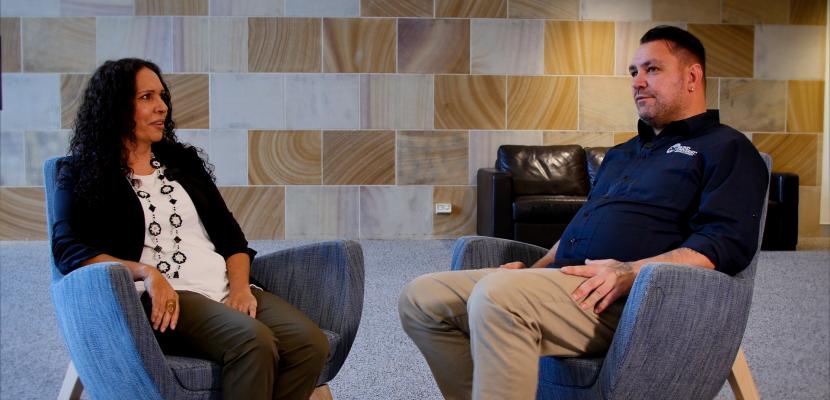
For two members of Bond University’s Indigenous community, reconciliation is something they contemplate every day of the year.
Jeremy Donovan and Narelle Urquhart came together this week to discuss National Reconciliation Week and its impact on Australian society.
“For Aboriginal and Torres Strait Islander people, Reconciliation Week is every day of our lives,” Mr Donovan said.
“The arc of conversations as an Indigenous person means we’re constantly being asked about Aboriginal history, Aboriginal affairs, Aboriginal people. And this one week amplifies that narrative.”
But, as Mr Donovan explains, having the opportunity to discuss the differing views of reconciliation on a national level is a positive step towards accepting the past.
“When people come together and listen to what we have to share, it gives us a platform for healing within ourselves,” he said.
This year marks the 20th anniversary of the historic Harbour Bridge Walk when more than 250,000 people crossed the Sydney Harbour Bridge to support recognition and reconciliation for Indigenous Australians.
While Ms Urquhart believes there’s still more work to be done in achieving true reconciliation in Australia, a lot has changed since that monumental moment in history.
“When the Bridge Walk happened, it was like a spotlight was put on the injustice of Indigenous people, and it was the catalyst for change,” she said.
“When you have an action like that, it’s an opportunity to shine a light on our shared history.
“Reconciliation is interesting because we, as Aboriginal people, have to reconcile to move forward. And not just in a broader sense but also more personally -- we need to reconcile within ourselves.”
The theme of Reconciliation Week 2020 is In This Together, and all Australians are being encouraged to take part in the celebrations.
Although in-person events have been cancelled due to COVID-19 travel and social distancing restrictions, virtual events are still happening around the country, including a live concert hosted by Christina Anu featuring artists such as Busby Maru and Alice Skye.
The performances will be streamed live via the Reconciliation Australia Facebook site, and broadcast across several ABC Radio stations.
But how the nation might successfully realise reconciliation is a question both Mr Donovan and Ms Urquhart continue to ponder.
“What we really need to focus on is how we can come together. And that dialogue has a way of coming out through artwork,” Mr Donovan said.
“Walking into a facility like Bond, you’re surrounded by some of the most incredible Indigenous artworks, so the moment you walk in as an Aboriginal person, you feel like you’re recognised.
“That is something I don’t necessarily feel in many other places that I walk into.”
For Ms Urquhart, education is key.
“Reconciliation comes from gaining knowledge of history and of truth-telling, but it’s also the personal responsibility of everyone,” she said.
“It’s not a new concept for Indigenous people, but a lot of non-Indigenous people might not think about reconciliation in-depth – they might just skim over the surface.
“And for that to change, people really need to invest in learning because you’re attempting to change mindsets and feelings, which isn’t always easy to do.”
Mr Donovan agrees that there’s an individual commitment that needs to occur to achieve reconciliation.
“I think it’s the responsibility of all Australians, but especially as Aboriginal and Torres Strait Islander people, we have to be present and willing to give knowledge that’s been left behind for us.
"And that willingness to share only comes from our own willingness to heal.”
For further information about the history of National Reconciliation Week, or for educational resources on reconciliation initiatives, visit:
Narragunnawali - https://www.reconciliation.org.au/narragunnawali/
Share Our Pride - http://www.shareourpride.org.au/

